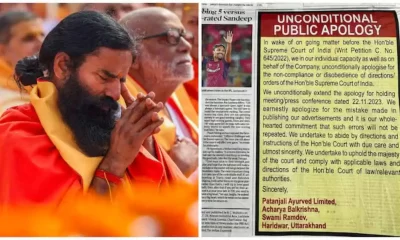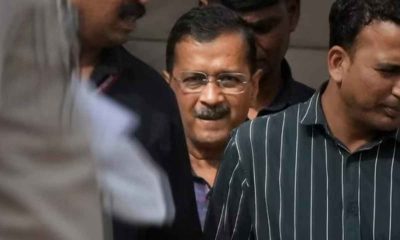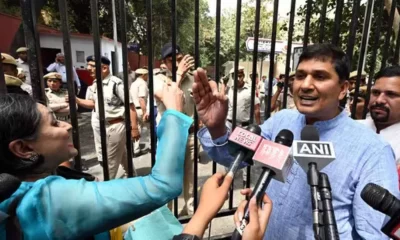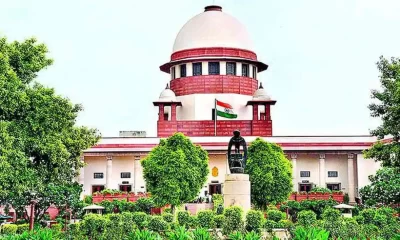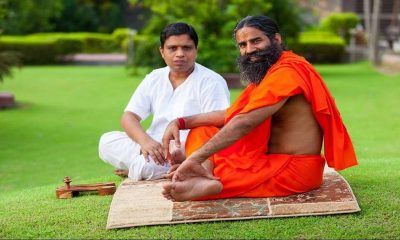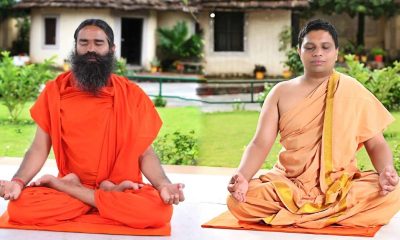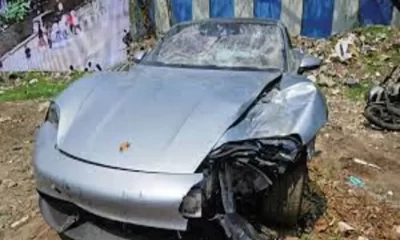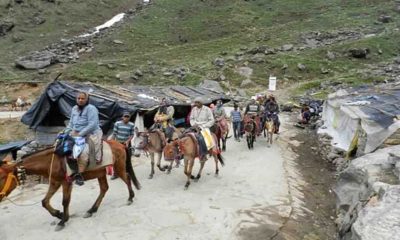India News
Government hails SC verdict on Right to Privacy; underscores the point that it is not an absolute right
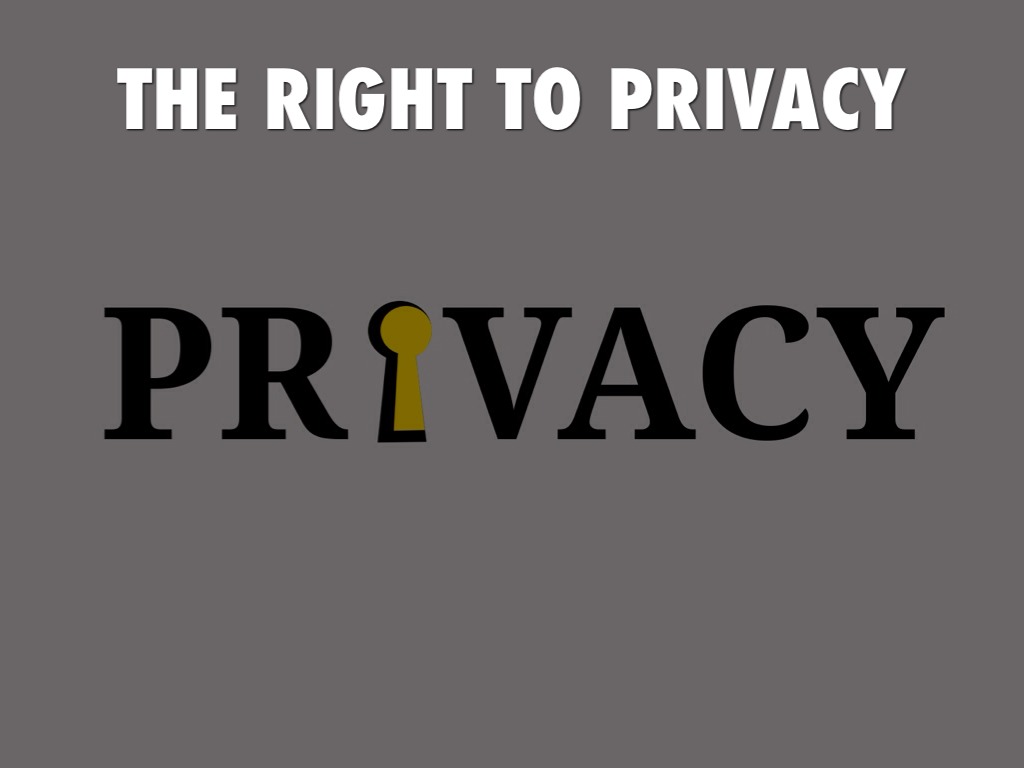
[vc_row][vc_column][vc_column_text]~By Rajesh Sinha
Smarting under the blow from Supreme Court’s verdict declaring Right to Privacy as a Fundamental Right, which it had hotly contested, the Centre’s reaction still focused on the aspect of “no right is absolute”.
Quoting from the judgment, a press release from the Ministry of Law and Justice said: “The Government is of the clear opinion that its legislations are compliant with the tests laid down in the judgement. The Supreme court has stated that “…requires a careful and sensitive balance between individual interests and legitimate concerns of the State. The legitimate aims of the State would include for instance protecting national security, preventing and investigating crime, encouraging innovation and the spread of knowledge, and preventing the dissipation of social welfare benefits.”
The government said it is committed to this object – and there lies the nub. This interpretation leaves the door open to encroachment on the right for questionable goals.
Critics say the Aadhaar ID cards link enough data to create a comprehensive profile of a person’s spending habits, their friends and acquaintances, the property they own and a trove of other information.
Aadhaar was originally meant to be a secure form of digital identification for citizens. But as it was rolled out, concerns arose about privacy, data security and recourse for citizens in the face of data leaks and other issues. Over time, Aadhaar was made mandatory for income tax returns and operating bank accounts. Companies also started pushing to gain access to Aadhaar details of customers. Opponents say that its use for what are effectively essential services means their right to privacy is increasingly being violated.
There were other concerns as well. First, making Aadhar mandatory for delivering services and ‘preventing dissipation of social service benefits’ is an intrusion into privacy for administrative convenience or to cover administrative inefficiency. If the government machinery is inefficient, should it encroach on Fundamental Rights? The court does say “preventing the dissipation of social welfare benefits” is a “legitimate aim of the State” to restrict the right.
Second, it is doubtful if making Aadhaar mandatory would enhance security. There have been instances of terrorists being found with Aadhaar cards. No instances have been reported of an Aadhaar card leading to a terrorist. On the other hand, making Aadhaar mandatory for various services, bank accounts, mobile phones etc makes it possible for any agency to access all kinds of information about an individual it wants to target and harass. Any individual whom an agency wants to target would be vulnerable to harassment. Even a notice seeking explanation is a harassment for the ordinary citizen, even if it does not involve any crime or offence and does not lead to prosecution or penalty.
The government appeared keen to retain its powers in this regard. Union Law Minister Ravi Shankar Prasad read from the judgments of the different judges on the Supreme Court bench to underscore that they acknowledged privacy “is not an absolute right, it must be subject to some reasonable restrictions.”
Contrary to what the government had argued in the court, he said the government’s view is consistent that right to privacy should be fundamental. He said the “essence of today’s judgment” validated what Arun Jaitley, then Law Minister, had told Parliament in 2016. “Much before the creation of the nine-judge bench, the government, while moving the Aadhaar Act had clearly acknowledged that Right to Privacy is fundamental, flowing from Article 21,” the minister said.
Prasad added that it is “unknown in civilised existence that a government was seeking to collect data of its countrymen without the authority of law”.
On the benefits of Aadhaar, Shankar claimed the government has saved Rs 57,000 crore through validation. “Aadhar validates information for 3 crore people every day. The world is marvelling at this technology. It is completely homegrown. Should be proud,” he said.
In its press statement, Union Ministry of Law and Justice said: “The Government welcomes the view of the Supreme Court, which is consistent with all the necessary safeguards that the Government has been ensuring in its legislative proposals which had been approved by Parliament.”
The Modi government statement was more of a political comment as it sought to attack the previous government: “The issue of personal liberty had a chequered history during the previous Congress Governments. Immediately after the Constitution was framed, the Congress Government at the Centre had consistently maintained that personal liberty could be denied to an individual by any legislation irrespective of the reasonableness of that legislation. The Congress Governments had consistently argued that privacy was not a part of any constitutional guarantees. In fact, during the internal emergency when Article 21 was suspended, the Central Government had argued before the Supreme Court that a person could be killed and deprived even his life (let alone liberty) and he would still be remediless.”
“The UPA Government had introduced AADHAR scheme without any legislative support. It was in that context that the question of the UPA’s AADHAR scheme was challenged before the judiciary. The NDA Government ensured that necessary legislation was approved by Parliament. Adequate safeguards were also introduced.”
“… the UPA Government created an AADHAR without any legislative support. The present Government did exactly the opposite. It gave a legislative support to AADHAR and incorporated in law special safeguards with regard to privacy. It has also assured the Supreme Court that it will soon be coming out with a data protection law for which a committee headed by Justice Sri Krishna, a retired judge of the Supreme Court, had already been appointed.”
The government reiterated, “The judgement reads that personal liberty is not an absolute right but liable to the restrictions provided in the Constitution which will be examined on a case to case basis.”[/vc_column_text][/vc_column][/vc_row]
India News
Pune police arrest father after son’s fatal Porsche crash, restaurant owner also detained
Pune Police Commissioner Amitesh Kumar mentioned that the father was detained from Maharashtra’s Sambhajinagar in the morning and was formally arrested after being brought to Pune.
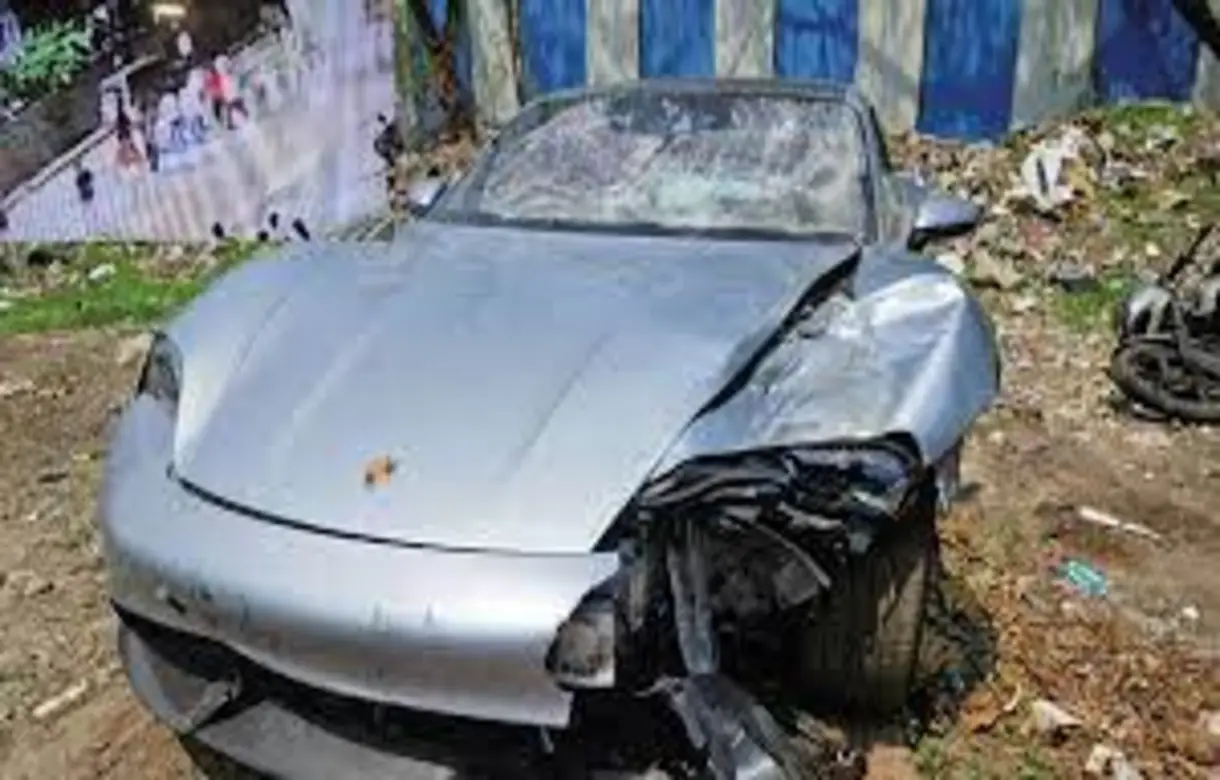
The Pune police have arrested the father of the juvenile involved in the fatal accident that occurred on Monday morning. The minor was driving a Porsche without a registration number, which crashed into a bike, resulting in two deaths. The authorities have also arrested the owners of two restaurants and a staff member for serving alcohol to minors.
Pune Police Commissioner Amitesh Kumar confirmed that the father of the accused has been arrested after he attempted to evade capture. He mentioned that the father was detained from Maharashtra’s Sambhajinagar in the morning and was formally arrested after being brought to Pune.
Among those arrested were Pralhad Bhutada, owner of Cosie, and Sandip Sangale, owner of Blak Club. The Pune Police Commissioner added that the license holders of two restaurants and one more person were arrested late last night and would be produced in court today.
The minor’s father, a prominent real estate developer in Pune, reportedly manages a famous club and has built a star hotel in addition to several significant projects. The Pune Police have booked the aforesaid people under the Motor Vehicles Act (MVA) and the Juvenile Justice Act (JJA) for failing in their duties as guardians and for allowing the minor to drive without a license.
The Yerawada police arrested the father for permitting the minor to drive, while the restaurant owners and staff were charged for serving liquor to the minor. The Police have invoked sections 3, 5, and 199A of the Motor Vehicle Act, 1988, and sections 75 and 77 of the Juvenile Justice (Care and Protection of Children) Act, 2015. The action was taken after police found that the Porsche, purchased in March, had not been registered.
Meanwhile, Leader of Opposition in Maharashtra assembly Vijay Wadettiwar demanded a judicial inquiry into the accident. He said that there is a question mark on Pune Police’s investigation, therefore a judicial inquiry should be conducted in this case.
He further pointed out that the police have reported that the alcohol test of the accused in the Pune accident was negative, but the CCTV footage of the accused, who is a minor, is drunk and that the report is raising a question mark on the police investigation.
India News
Uttarkashi authorities issues order to limit movement of horses and mules on Yamunotri Dham pilgrimage route
The District Magistrate Dr. Meherban Singh Bisht issued an order that the maximum number of horses and mules going from Janki Chatti to Yamunotri and vice versa has been limited to 800.
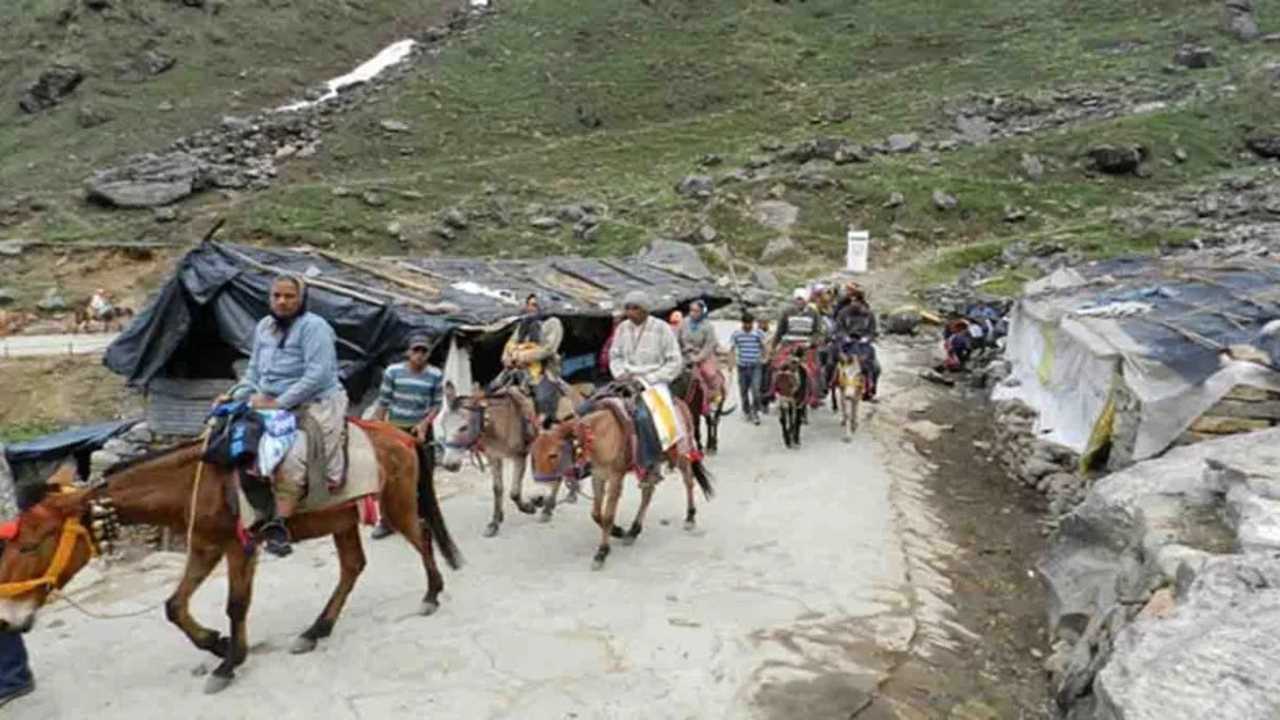
In an effort to ensure the safety and convenience of piligrims, the district authorities of Uttarkashi have issued an order to curb the movement of horses and mules on the Shri Yamunotri Dham foot pilgrimage route.
The District Magistrate Dr. Meherban Singh Bisht issued an order that the maximum number of horses and mules going from Janki Chatti to Yamunotri and vice versa has been limited to 800. Additionally, the time for their movement is restricted to between 4 a.m. and 5 p.m. The District Magistrate has instructed the relevant departments and officials to promptly execute the above-mentioned orders and see to it that they are followed by all. He has also instructed the relevant department and officials to promptly execute the mentioned order.
On May 19, a significant number of devotees visited the holy sites of Gangotri and Yamunotri Dhams in Uttarakhand. By 2 p.m. on Sunday, approximately 10,000 devotees worshipped at Gangotri Dham, while 28,000 pilgrims were en route to Gangotri. Similarly, at Yamunotri Dham, 8,500 people had worshipped, and 20,000 individuals were progressing along the Yamunotri route from various stops.
The order also imposes a complete ban on the movement of horses, mules, and sticks beyond the Ghoda Padav in Shri Yamunotri Dham. Violators will be punishable under Section 188 of the Indian Penal Code (IPC), as per the DM’s order. This decision was prompted by a joint report submitted by the Barkot’s Sub-District Magistrate, Deputy Superintendent of Police, and Uttarkashi Additional Chief Officer of the District Panchayat. The report emphasized the need for crowd control to safeguard pilgrims, lives, and property.
The Char Dham Yatra, which includes sites like Yamunotri, Gangotri, Kedarnath, and Bedrinath, began on May 10 this year. Uttarakhand witnesses a peak in pilgrimage season during the summers, drawing thousands of devotees to these sacred destinations.
2024 Lok Sabha Elections
BJP issues show-cause notice to MP Jayant Sinha for not voting in Lok Sabha Elections
Sinha has been accused of not paying attention to his organizational duties and did not participate in the election campaigning since Jaiswal’s candidacy was announced. His absence during elections in Hazaribag Lok Sabha seat on Monday has further intensified the situation in BJP.
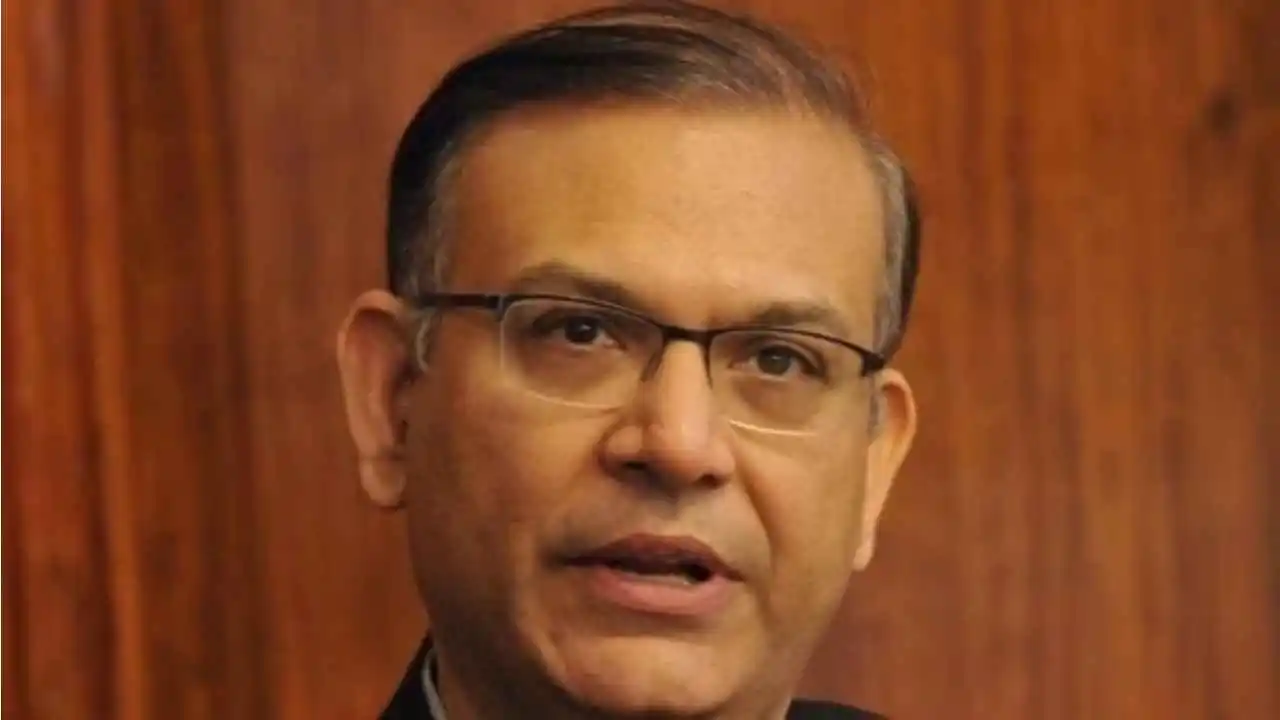
BJP on Monday issued a show cause notice to former Union Minister Jayant Sinha for not participating in the Lok Sabha elections after Manish Jaiswal was declared candidate from the Hazaribagh Lok Sabha seat and thereby maligning the party’s image. Jayant Sinha is the son of former union finance minister Yashwant Sinha and is the sitting MP of Hazaribag. Sinha did not participate in elections in Hazaribag Lok Sabha seat.
Sinha has been accused of not paying attention to his organizational duties and did not participate in the election campaigning since Jaiswal’s candidacy was announced. His absence during elections in Hazaribag Lok Sabha seat on Monday has further intensified the situation in BJP. The notice issued on Monday requires Sinha to provide an explanation within 2 days, as per instructions from state BJP president and former Jharkhand chief minister Babulal Marandi. Sahu said further actions will depend on Sinha’s response.
Attempts were made to reach him for his comments but Sinha remained unavailable and did not respond to calls and messages. Earlier Sinha took to X and expressed his desire to shift his focus towards combating global climatic change and highlighting his attention to continue working with economic and governance issues.
In the past Hazaribag has been represented by both Yashwant Sinha and his son Jayant Sinha and holds substantial political weight in Jharkhand. In the 2019 general elections Jayant Sinha was victorious by a margin of 4.79 lakh votes and defeated Congress’s Gopal Sahu. Jaiswal whose nomination sparked controversy had earlier contested elections from the Mandu assembly seat on a JVM ticket.
Earlier Jayant Sinha has served on India’s council of ministers from 2014 and 2019, and also as the minister of state for finance and minister of state of civil aviation. The BJP MP is also known for helping launch the UDAN regional connectivity scheme that increased the number of operational airports in India by 50% in 3 years.
-

 India News21 hours ago
India News21 hours agoAAP leader Sanjay Singh accuses BJP of planning an attack on Delhi CM Arvind Kejriwal
-

 2024 Lok Sabha Elections22 hours ago
2024 Lok Sabha Elections22 hours ago36.73% voter turnout recorded till 1 pm in 5th phase of the Lok Sabha elections
-

 India News19 hours ago
India News19 hours agoMessages threatening Arvind Kejriwal appear on walls of Delhi metro station, inside trains, AAP blames BJP
-

 Entertainment19 hours ago
Entertainment19 hours agoJacqueline Fernandez stuns in custom sequin gown at Cannes 2024
-

 Entertainment20 hours ago
Entertainment20 hours agoYami Gautam, Aditya Dhar welcome baby boy Vedavid
-

 India News22 hours ago
India News22 hours agoIMD issues red alert for heavy rainfall in Kerala
-

 Entertainment19 hours ago
Entertainment19 hours agoMalayalam film industry crosses Rs 1,000 crore worldwide, Bollywood, Telugu films left struggling
-

 2024 Lok Sabha Elections18 hours ago
2024 Lok Sabha Elections18 hours agoVoter turnout of 56.68% recorded till 5pm in 5th phase of Lok Sabha elections

